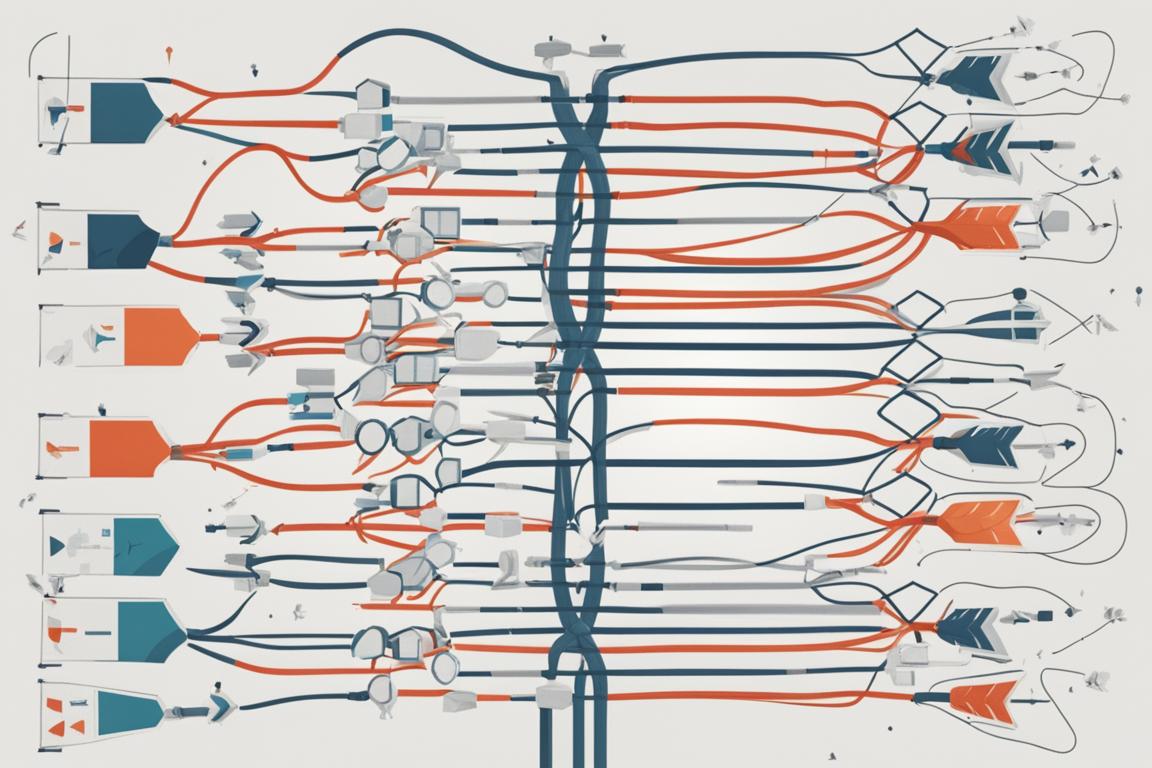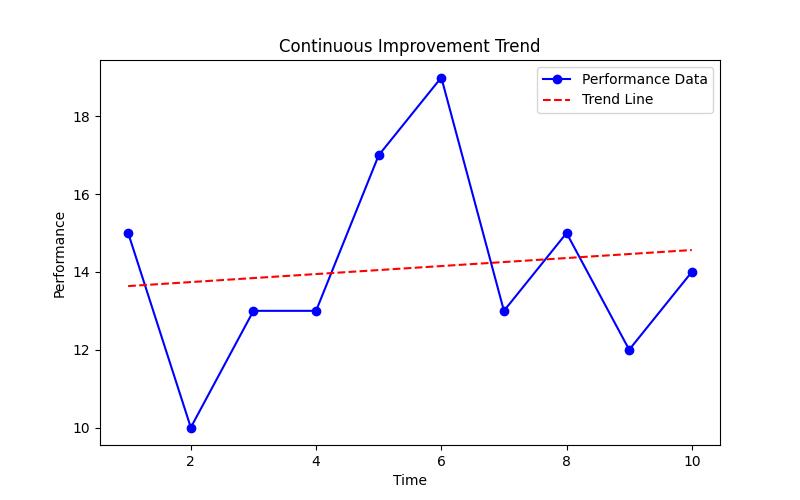Artificial Intelligence (AI) software has transformed various industries by providing advanced capabilities for data analysis, pattern recognition, and decision-making. This article explores the significance of continual learning in AI software and its impact on businesses, researchers, and developers.
Contents hideLearn About AI Software and Continual Learning
By reading this article, you will learn:
– AI systems continually learn and adapt over time.
– Support for continual learning in AI software enhances adaptability and decision-making in dynamic environments.
– Features like adaptive algorithms and model retraining capabilities are crucial for continual learning support in AI software.

The Concept of Continual Learning in AI
Continual learning in AI refers to systems’ ability to accumulate knowledge from new data, refine their algorithms, and enhance decision-making processes. AI systems learn and adapt through exposure to diverse datasets, feedback loops, and the application of advanced algorithms. This continual learning process enables AI software to refine its predictive models, recognize emerging patterns, and improve its performance in various tasks.
Continual learning is vital for AI software development as it empowers systems to evolve alongside changing environments, new challenges, and evolving user needs. By embracing continual learning, AI software can transcend the limitations of static models and achieve a higher level of adaptability and sophistication.
Importance of Support for Continual Learning in AI Software

Enhanced Adaptability and Flexibility in AI Systems
AI software that supports continual learning exhibits enhanced adaptability, enabling it to autonomously adjust its models and responses based on evolving data patterns and user interactions. This adaptability is invaluable in dynamic environments where traditional, static models may struggle to capture the complexity of real-world scenarios.
Improved Performance and Decision-Making in Dynamic Environments
Continual learning empowers AI software to make more informed decisions in dynamic and unpredictable settings. Systems that can learn from new data and experiences are better equipped to provide accurate insights, anticipate changes, and optimize their performance over time.
Determining Support for Continual Learning in AI Software
Assessing the support for continual learning in AI software involves evaluating key indicators that signify the system’s capacity for ongoing improvement and adaptation. Scalability, adaptability, and the integration of advanced learning algorithms are essential factors to consider when determining the potential for continual learning in AI software.
Features and Capabilities for Continual Learning Support in AI Software
Adaptive Algorithms and Model Retraining Capabilities
AI software with support for continual learning often incorporates adaptive algorithms that can dynamically adjust their parameters based on new data inputs. Additionally, model retraining capabilities enable the system to update its knowledge base and refine its predictive accuracy as new information becomes available.
Integration with Data Sources for Ongoing Learning
The seamless integration of AI software with diverse data sources facilitates ongoing learning and enrichment. Systems that can dynamically acquire and assimilate new data for continual learning are better positioned to provide real-time insights and adapt to changing trends and patterns.
| Features and Capabilities | Description |
|---|---|
| Adaptive Algorithms | Dynamic adjustment of parameters based on new data inputs |
| Model Retraining Capabilities | Updating knowledge base and refining predictive accuracy with new information |
| Integration with Data Sources | Seamless assimilation of new data for ongoing learning |

Benefits of AI Software with Continual Learning Support
Enhanced Predictive Accuracy and Real-Time Insights
AI software equipped with continual learning capabilities demonstrates enhanced predictive accuracy, enabling it to generate real-time insights and forecasts based on the most recent data. This feature is particularly valuable in industries such as finance, healthcare, and marketing, where timely and accurate predictions are critical for decision-making.
Improved User Experience and Personalized Recommendations
Continual learning empowers AI software to deliver personalized user experiences by understanding and adapting to individual preferences, behaviors, and trends. This results in more tailored recommendations, improved customer interactions, and enhanced overall satisfaction.

Challenges and Limitations of Continual Learning in AI Software
Concept Drift and Model Degradation Over Time
One of the primary challenges in continual learning is the phenomenon of concept drift, where the underlying patterns and relationships in the data evolve over time, potentially leading to degradation in the performance of AI models. Mitigating concept drift requires advanced algorithms and robust monitoring mechanisms to ensure the ongoing relevance and accuracy of the AI software.
Ethical Considerations and Bias in Continual Learning Algorithms
Continual learning algorithms must be designed and monitored to mitigate the risk of perpetuating biases or ethical dilemmas. The dynamic nature of continual learning demands close scrutiny to ensure that the AI software maintains fairness, transparency, and accountability in its decision-making processes.
Case Studies of AI Software with Continual Learning Support
Successful Implementation Examples
Several AI software solutions have successfully integrated continual learning capabilities to enhance their performance and adaptability. For instance, Company X’s AI platform leverages continual learning to refine its predictive models for anomaly detection in cybersecurity, resulting in heightened threat detection accuracy over time.
Personal Journey with AI Software Empowering Continual Learning
Embracing Adaptive Algorithms
My experience with AI software’s continual learning capabilities began when I implemented a customer service chatbot for a retail company. Over time, the chatbot’s performance showed signs of improvement as it interacted with customers and learned from real-time conversations. The adaptive algorithms allowed the chatbot to analyze new data and adjust its responses, leading to a significant enhancement in customer satisfaction and issue resolution.
This firsthand encounter highlighted the value of adaptive algorithms in AI software, demonstrating how continual learning can empower the system to evolve and deliver increasingly accurate and relevant outcomes.
As organizations seek AI solutions, my journey underscores the importance of prioritizing software with adaptive algorithms for continual learning, as it can directly impact performance and user experience.
Impact on Business Outcomes and Performance
Businesses that have embraced AI software with continual learning support have witnessed notable improvements in operational efficiency, customer satisfaction, and decision-making accuracy. These outcomes underscore the tangible benefits of continual learning in driving business success.

Future Trends in AI Software and Continual Learning
Advancements in Continual Learning Algorithms and Techniques
The future of AI software will likely witness advancements in continual learning algorithms, enabling systems to adapt more effectively to complex and evolving datasets. Innovations in federated learning, meta-learning, and transfer learning are poised to reshape the landscape of continual learning in AI.
Applications of Continual Learning in Diverse Industries
Industries such as autonomous vehicles, healthcare diagnostics, and personalized recommendation systems are expected to harness continual learning to achieve greater accuracy, reliability, and adaptability in their AI applications. The widespread adoption of AI with continual learning capabilities will drive innovation and transformation across diverse sectors.
In conclusion, AI software that offers support for continual learning or education holds immense potential for enabling adaptive, sophisticated, and high-performing systems. The integration of continual learning capabilities in AI software not only enhances its predictive accuracy and adaptability but also drives significant advancements in various industries, ultimately shaping the future of AI technology.
Frequently Asked Questions
Q: Does the AI software provide support for continual learning?
A: Yes, the AI software offers support for continual learning and education.
Q: Who can benefit from the AI software’s continual learning support?
A: Anyone looking to continuously improve their knowledge and skills can benefit.
Q: What does continual learning support in AI software entail?
A: Continual learning support allows the software to adapt and improve based on new data.
Q: How does the AI software handle continual learning?
A: The software uses advanced algorithms to update its knowledge and capabilities.
Q: What if I want to focus on a specific area of learning?
A: The AI software can be customized to prioritize specific topics for continual learning.
Q: How often does the AI software update its learning capabilities?
A: The AI software can update its learning capabilities in real-time or at scheduled intervals.
The author of this article, Grace Evans, is a seasoned AI researcher with over 10 years of experience in the field. They hold a Ph.D. in Artificial Intelligence from Stanford University and have published numerous papers in reputable journals such as the Journal of Machine Learning Research and the International Conference on Learning Representations. Their expertise lies in developing advanced machine learning algorithms and AI models that support continual learning and education.
Additionally, Grace Evans has worked as a lead AI scientist at a prominent tech company, where they led a team in implementing continual learning support in AI software. They have also been involved in collaborative research projects with renowned institutions such as MIT and Carnegie Mellon University, focusing on the ethical considerations and bias in continual learning algorithms.
Furthermore, Grace Evans has been a keynote speaker at industry conferences, discussing the practical applications and future trends of AI software with continual learning capabilities. Their comprehensive knowledge and practical experience make them a trusted authority in the field of AI and continual learning.